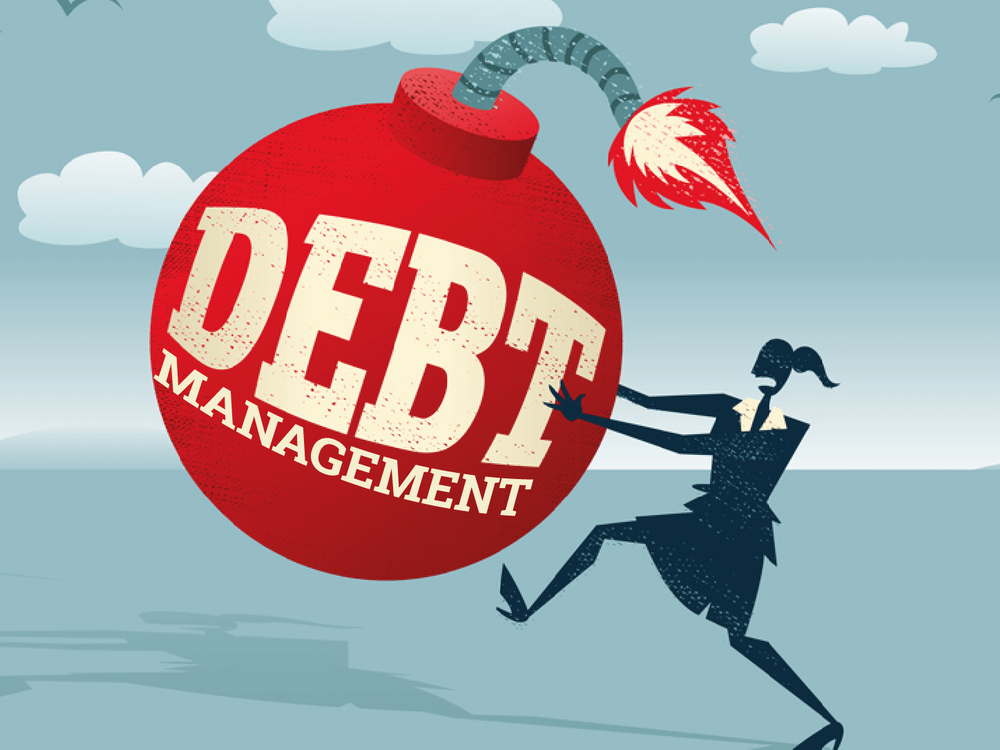Specialist Tips and Strategies for Applying a Successful Debt Administration Plan
When it pertains to navigating the intricacies of financial debt administration, having a well-balanced plan is important for attaining monetary stability. Executing specialist tips and methods can make a substantial difference in your journey towards debt relief. From analyzing your present economic standing to discussing with financial institutions, each step plays a critical role in forming a successful financial debt monitoring strategy. By recognizing the complexities of financial obligation management and adopting tested strategies, individuals can lead the way for a more safe and secure economic future.
Assessing Your Current Financial Scenario
Prior to beginning on a financial debt administration strategy, it is crucial to extensively assess your current financial standing. Understanding your economic scenario is the foundational action in the direction of properly handling and decreasing your financial debt.

Creating a Realistic Budget Plan
Recognizing your existing financial circumstance lays the foundation for developing a practical budget that straightens with your financial obligation monitoring goals and economic abilities. When developing a budget plan, it's critical to precisely track your earnings, costs, and financial obligation responsibilities. Beginning by detailing all sources of revenue, including incomes, bonus offers, and any kind of additional incomes. Next off, detail your dealt with expenses such as lease or home loan payments, utilities, insurance, and financing payments. Variable expenditures like grocery stores, entertainment, and transportation needs to likewise be accounted for. By classifying your expenses, you can recognize areas where you may need to cut down to liberate funds for financial debt payment.

Prioritizing and Tackling Debts
To effectively reclaim control of your funds and work in the direction of monetary stability, focusing on and tackling your debts is a critical action in your financial debt monitoring strategy. Begin by noting all your debts, including bank card, loans, and any kind of various other impressive balances. Identify high-interest financial debts that are costing you one of the most money and prioritize paying them off initially. By concentrating on these high-interest debts, you can save cash over time and reduce the complete quantity you owe.
After identifying your high-interest financial debts, think about making use of methods like the debt snowball or financial debt avalanche method to pay them off methodically. The debt snowball approach involves repaying the smallest financial obligations first, while the financial obligation avalanche method focuses on debts with the greatest passion rates. Pick the method that lines up ideal with your monetary objectives and motivates you to maintain making progression.
Furthermore, take into consideration working out with financial institutions for lower rate of interest or establishing a layaway plan if you're struggling to satisfy your existing obligations. Looking for aid from a credit score counselor or monetary expert can also supply valuable understandings and advice on how to successfully tackle your debts - debt management plan services. By prioritizing and resolving your financial debts strategically, you can lead the way in the direction of a try this debt-free future and improved monetary health
Working Out With Lenders
When participating in debt management, discussing with financial institutions is a crucial step towards discovering equally beneficial remedies for financial debt repayment. Open communication with creditors can lead to revised layaway plan, reduced rates of interest, or perhaps negotiation deals. Before starting settlements, it is vital to have a clear understanding of your monetary situation, including your income, expenses, and the total quantity of financial debt owed. This info will not only help you make realistic deals yet additionally demonstrate to creditors that you are committed to dealing with the debt.

Structure Healthy Economic Practices
Incorporating constant budgeting techniques is vital for cultivating healthy economic habits. Budgeting enables people to track their income and expenditures, allowing them to make informed choices about their monetary top go to website priorities. Setting particular monetary objectives, such as conserving for emergencies or retirement, can give a clear roadmap for managing money successfully.
An additional secret facet of building healthy economic routines is living within one's means. This entails investing much less than what is earned and avoiding unnecessary financial obligation. Taking on a penny-wise mindset and identifying between wants and needs can help people make even more sensible investing options.
Consistently evaluating monetary declarations and checking credit scores reports are crucial habits that advertise monetary understanding and responsibility. By remaining notified about their financial standing, people can determine potential concerns early and take positive steps to resolve them.
Moreover, establishing a financial savings routine, despite having percentages, can add substantially to long-term economic security. Conserving on a regular basis not only constructs a monetary cushion for unanticipated costs but additionally fosters a feeling of self-control and responsibility in the direction of finance. By constantly practicing these behaviors, people can lay a strong structure for a steady monetary future.
Conclusion
To conclude, carrying out a successful financial obligation management strategy Full Report requires a detailed evaluation of one's financial circumstance, the advancement of a practical budget plan, prioritizing and taking on debts, discussing with financial institutions, and building healthy economic habits (debt management plan services). By complying with these specialist tips and techniques, people can take control of their funds and work towards accomplishing economic security and freedom from financial obligation
Recognizing your current financial situation lays the groundwork for creating a practical budget that lines up with your financial obligation monitoring objectives and financial capabilities.To effectively gain back control of your funds and job in the direction of economic security, focusing on and tackling your debts is an important step in your financial obligation administration strategy.After recognizing your high-interest debts, consider using techniques like the financial obligation snowball or financial obligation avalanche technique to pay them off methodically. The financial obligation snowball technique includes paying off the tiniest financial debts initially, while the financial debt avalanche approach focuses on financial debts with the greatest rate of interest prices.When involving in financial obligation administration, negotiating with creditors is a critical step in the direction of locating mutually useful options for debt repayment.